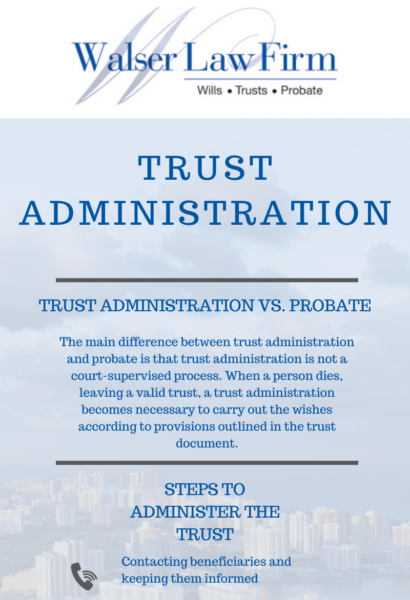The legal method through that a deceased person’s estate is correctly distributed to heirs and selected beneficiaries, additionally to any debt owed being paid off to creditors is known as probate. During this case, a private representative, typically a trusty friend or a member of the family, is in charge of administering an estate.
The personal representative is tasked with varies duties to ultimately transfer property from the decedent’s estate to the heirs, in many states they are known as an executor. Additionally, the representative should certify that taxes and creditors are paid in full before assets are dispersed to beneficiaries.
Your loved one might also have created an inter-vivos trust throughout his or her life or a testamentary trust through the will. The person or establishment named as trustee is accountable for administering this document. We can assist you in effectively doing your duties as a private representative or trustee.
The main distinction between a probate and a trust administration is probate is a court supervised process, unlike trust administration. Once someone passes, leaving a valid trust, a trust administration becomes necessary to hold out the needs in step with provisions printed within the trust document.
(Click on the image for full view)
Source: Walser Law Firm


